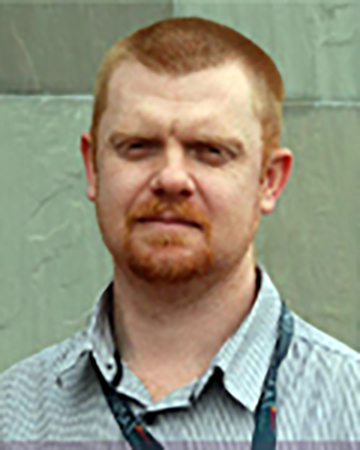College of Science, Engineering & Technology
An energy crisis and an environmental crisis: Could two problems be solved with one solution?
Dr James Fox holds bachelor and doctoral degrees in chemical engineering. He has an unusual array of experience, including academic research, teaching, and industrial projects. This combination resulted in him being one of the rare professional engineering academics accredited with the Engineering Council of South Africa.

Dr James Fox
Some five years ago, he watched a news report on the accumulation of waste plastics and the threat this poses to the environment. Waste plastics can persist in the environment for as long as 1000 years. Conversely, carbon dioxide (CO2) is used by plants for photosynthesis. CO2 is a part of the natural environment; waste plastics are not and potentially pose a greater threat to the environment than CO2 emissions.
He thought: “Someone smart, skilled and good-looking needs to look into that. Wait, I consider myself smart and skilled, and two out of three is not bad; why don’t I look into that?” This was how the project began.
In the beginning, he identified two major global crises: firstly, there is an environmental crisis relating to climate change. Secondly, there is a global energy crisis. South Africa has been experiencing load shedding for the last fourteen years. Power shortages are not limited to South Africa, it is a global problem. He thought: “I wondered if waste plastic could be used as a fuel to generate power, and how it would compare to other fuels. It makes sense to try and solve two problems at the same time, right?”
The research found that not only can waste plastic be used for power generation, but it is actually better than coal and easier to use than biomass.
However, this was an entirely new ‘greenfield’ project. There was no prior experience of such an undertaking at Unisa and he had no resources or funding to draw on. “I had nothing but my own knowledge and an empty Excel spreadsheet. Starting with nothing was challenging. I faced scepticism and doubt about starting entirely new research, which is risky and could take a long time to produce results. However, I persevered and gradually made progress,” said Fox. The project eventually drew the attention of others and expanded to now include nearly R2-million in funding, international patents and a student who achieved their master’s qualification.
Additional research and experiments are needed to make the technology ready for commercial application. The goal is to use this research to build a waste-plastic-to-power-system prototype that can demonstrate technology that is commercially viable. Achieving this has been the focus of his current work.
More nations are starting to take notice of the potential of waste-to-energy technologies. These countries have great wealth to invest in research and development, but South Africa does have a head start. It is important that we do not squander this advantage.
For those who wish to follow in his footsteps, Fox advises: “Do not follow. We are all just human, flawed and imperfect. Forge your own path, walk alone if you must, but make your path your own.”
Click here to learn more about Fox’s interview on eNCA regarding his research project of converting waste plastic material for energy generation.
*By Dr Nozipho N Gumbi, Acting Communication and Marketing Specialist, College of Science, Engineering and Technology and Lesego Maloka, Administrative Assistant, College of Science, Engineering and Technology
Publish date: 2022/06/06

 Unisa co-hosts G20 community outreach in the Eastern Cape
Unisa co-hosts G20 community outreach in the Eastern Cape
 Unisans gain membership of prestigious science academies
Unisans gain membership of prestigious science academies
 Advocating for disability transformation through servant leadership
Advocating for disability transformation through servant leadership
 Unisa Press continues to illuminate the publishing space
Unisa Press continues to illuminate the publishing space